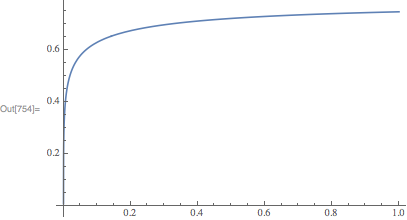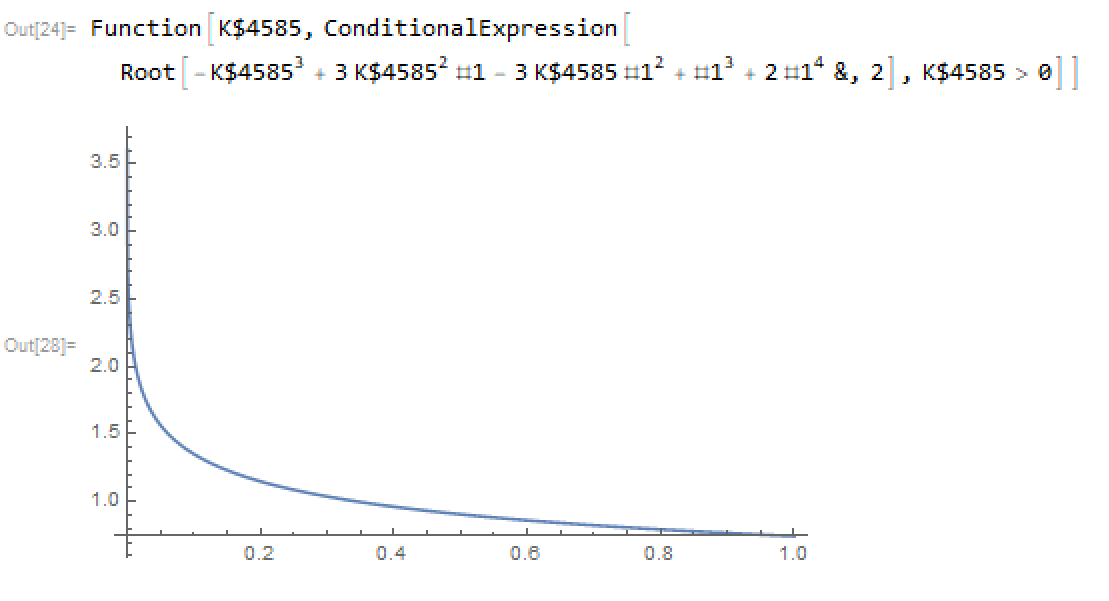Your problem is that InverseFunction is choosing the "wrong" branch for the inverse. To account for this, you can use ConditionalExpression to pick the branch used by InverseFunction. For your example:
f[x_] := x + 2^(1/3) x^(4/3)
if = InverseFunction[ConditionalExpression[f[#], #>0]&]
Rather than finding the inverse of Composition[f, f], it will be easier for Mathematica to use Composition[if, if]. So:
g = Composition[if, if];
Now, unfortunately, there is an issue when using Derivative on the above Composition object, so I will use the following workaround to obtain g':
gp = (Composition[h, h]') /. h -> if;
Let's do a couple quick numerical checks:
(* inverse check *)
Composition[f, f][g[1.]]
1.
(* derivative check *)
gp[1.]
10^6 (g[1. + 10^-6] - g[1.])
0.20484
0.20484
Looks good. Now, we can define k:
k[x_] := x^(1/3) gp[x]/g[1]
Finally, a plot:
Plot[k[x], {x, 0, 1}, PlotRange->All]




k[x]is complex. UsePlot[Evaluate@ReIm@k[x], {x, 0, 1}, WorkingPrecision -> 15]instead. $\endgroup$